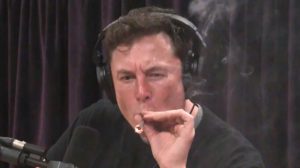Twitter v. Musk: Will The Spat About Spam Be Settled In Court?
Neither of the parties has acknowledged an industry standard for determining the number of spam accounts. What could possibly go wrong?
 As many predicted, Elon Musk backed out of his attempt to acquire Twitter after a public spat about fake and spam bots in its userbase. In response, Twitter sued Musk, demanding specific performance to force Musk to purchase Twitter for $44 billion. Why are fake accounts such an issue for Musk? And what is this lawsuit going to accomplish?
As many predicted, Elon Musk backed out of his attempt to acquire Twitter after a public spat about fake and spam bots in its userbase. In response, Twitter sued Musk, demanding specific performance to force Musk to purchase Twitter for $44 billion. Why are fake accounts such an issue for Musk? And what is this lawsuit going to accomplish?
For some, this turn of events is strange considering that when all of this began, Twitter’s board of directors and many of their notable users did not want Musk to purchase the company. The board implemented a poison pill which would have made it extremely costly for Musk to purchase a majority share. Several prominent users deleted their Twitter accounts in response and others threatened to do the same if the purchase was completed.
Twitter, in its quarterly SEC filings claims that less than 5% of its users are spam or fake accounts. But this calculation is not based on any industry standard, if one exists. The calculation is done through their own internal audits using automated and manual reviews. It acknowledges that independent audits from third parties and using competitors’ methods could result in a different (and possibly higher) percentage.

The Business Case For AI At Your Law Firm

Musk’s reason for terminating the purchase was due to Twitter’s failure to provide information — to his satisfaction — on fake and spam accounts. He wanted to verify Twitter’s claim that less than 5% of its users were fake. He also claimed that several key employees were fired without his permission, which was in violation of the merger agreement.
In its complaint, Twitter stated that it provided all of the information that Musk requested, even allowing him to have access to the “firehose,” which is a live feed of tweets, likes, and retweets. Twitter also argues that Musk cannot terminate the agreement because he has violated the merger agreement by making disparaging tweets about the company during negotiations. These tweets and Musk’s change of heart has lowered Twitter’s stock value and hurt its reputation.
Fake and spam accounts can be problematic. They inflate the number of users, which might upset advertisers who want to reach a certain number of monetizable active daily users. Similarly, these accounts could make certain people appear more popular and influential than they actually are by inflating their follower count. Worst of all, fake accounts can be used to spread lies and harass other users. These accounts can send automated tweets promoting Viagra or the latest Ponzicoin. If these accounts go unchecked, users might switch to another platform like TikTok, Twitch, or Truth Social. Advertisers will take their money elsewhere.
On the other hand, spam and fake accounts can be used for good. Some people use alter ego accounts to disclose sensitive and confidential information in the public interest. Automated accounts can also be useful for announcing stock prices and sales, for those who want such information.
Sponsored

Navigating Financial Success by Avoiding Common Pitfalls and Maximizing Firm Performance

Is The Future Of Law Distributed? Lessons From The Tech Adoption Curve

The Business Case For AI At Your Law Firm


Is The Future Of Law Distributed? Lessons From The Tech Adoption Curve
As this lawsuit proceeds, Musk and his legal team will again demand the information he wanted during the discovery process. Since both sides disagree about the level of cooperation, the judge is likely to pay close attention to the reasonableness and specificity of Musk’s demands and whether Twitter is willing to provide the information requested.
Assuming Twitter provides Musk with the information he requested regarding fake and spam accounts, Musk will likely use his own methodology and metrics to determine whether Twitter’s 5% claim is correct. If Musk’s findings show a higher number of fake accounts, will the court accept his conclusion and allow him to walk away from the deal? Keep in mind that neither of the parties has acknowledged an industry standard for determining the number of spam accounts. There may be an issue as to what a fake or spam account is.
Also, the lawsuit may provide information on why Musk really wants to buy Twitter. Or whether he wanted to buy it at all. There is talk that this offer was a ploy by Musk to sell his Tesla stock at its peak without spooking investors and possibly lowering the value of outstanding Tesla stock. Or did he just want to reinstate the accounts of former president Donald Trump and the Babylon Bee?
This lawsuit raises some interesting questions. But it seems like as the case progresses, it seems less likely that we will get answers. Instead, there will be more negative press about both Musk and Twitter. So it might be in everyone’s best interest to settle this lawsuit sooner than later.
Sponsored

Early Adopters Of Legal AI Gaining Competitive Edge In Marketplace

Legal AI: 3 Steps Law Firms Should Take Now
Steven Chung is a tax attorney in Los Angeles, California. He helps people with basic tax planning and resolve tax disputes. He is also sympathetic to people with large student loans. He can be reached via email at stevenchungatl@gmail.com. Or you can connect with him on Twitter (@stevenchung) and connect with him on LinkedIn.







